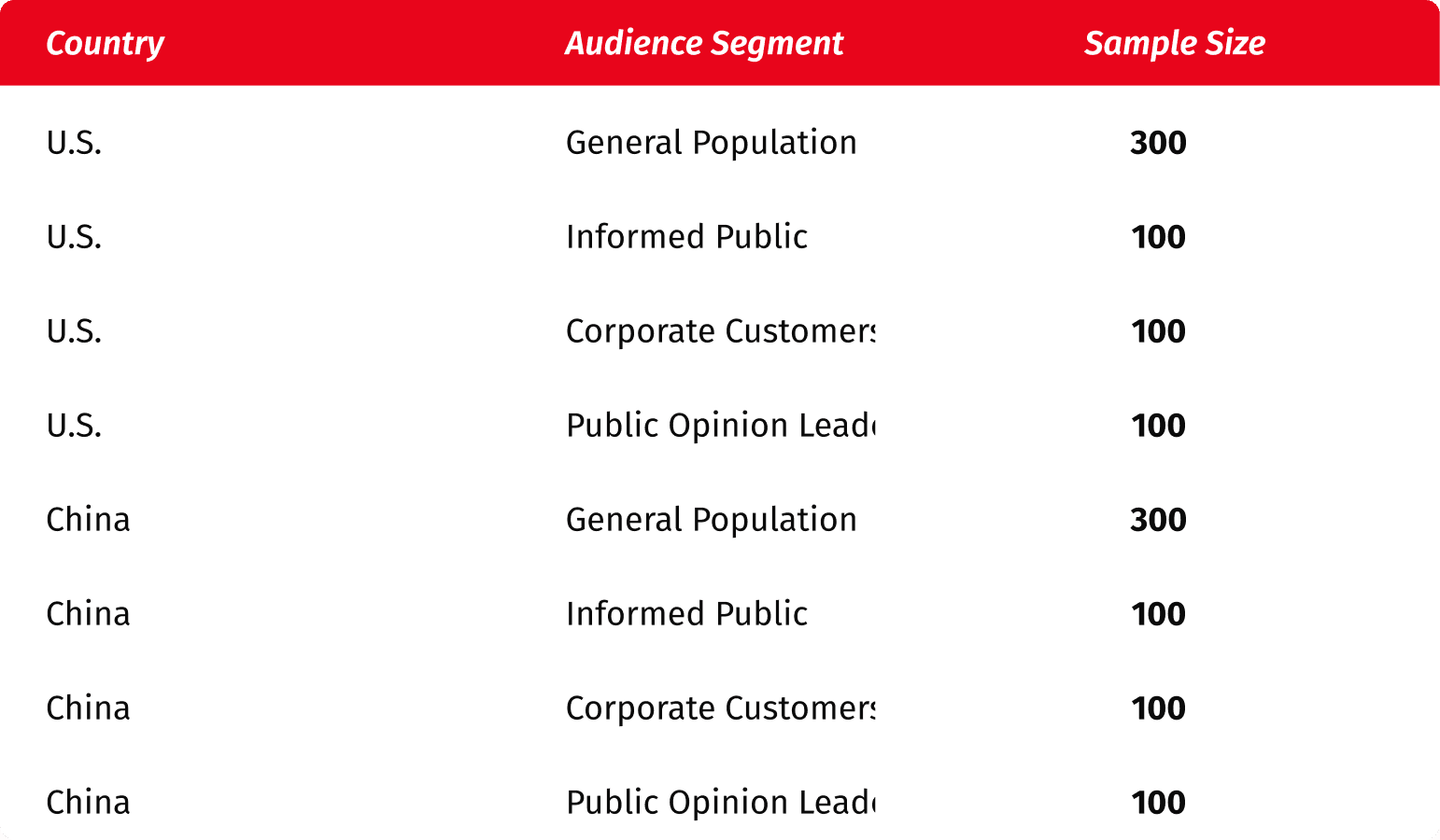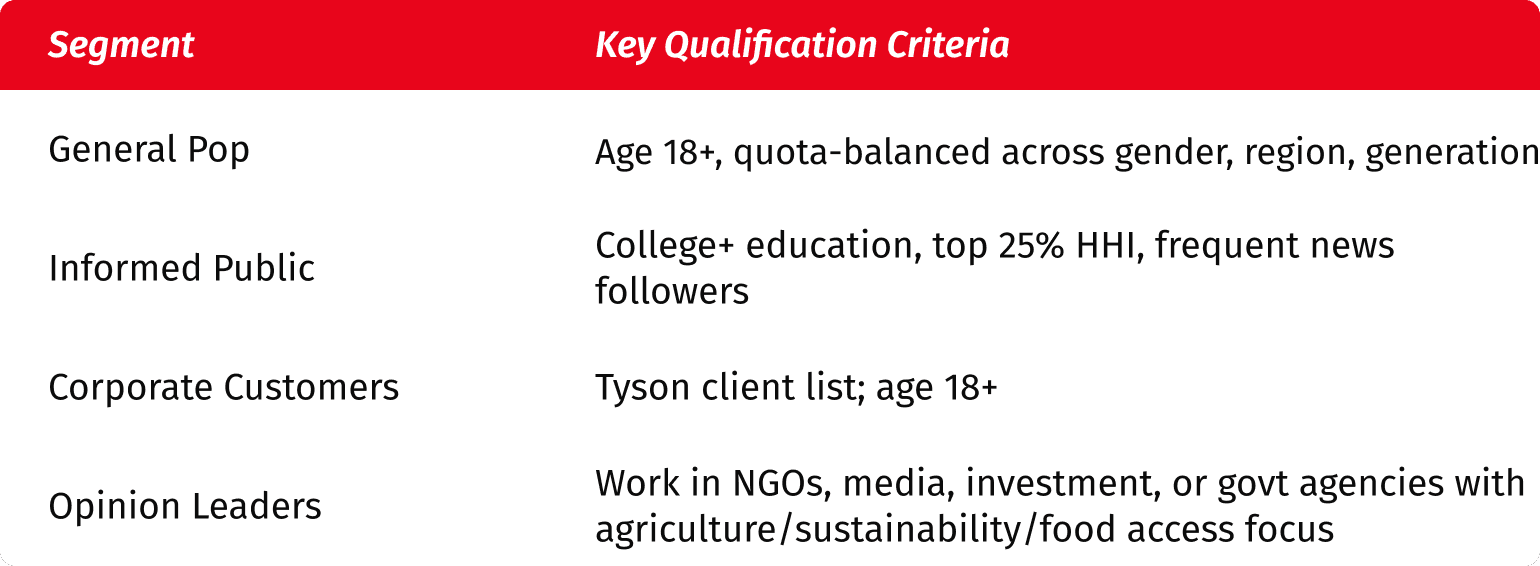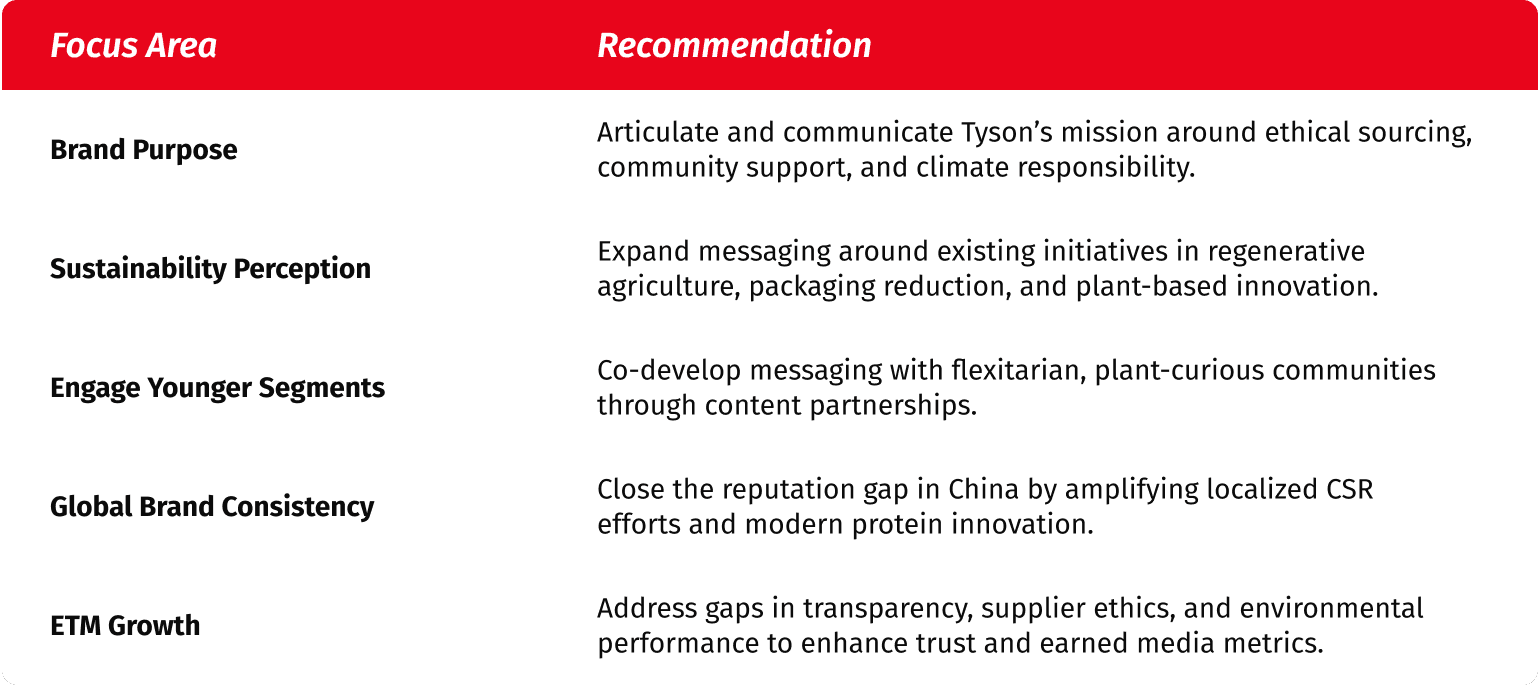
Retail
Uncovering the procurement practices, pain points, and unmet needs of SMEs

As a global leader in protein production and food innovation, Tyson Foods sought to understand how its corporate reputation, brand image, and ESG-related efforts are perceived across critical markets and influential stakeholders.
a. Multi-Audience Survey Framework
The survey targeted a diverse and segmented audience to generate 360° insights:

b. Vertically Integrated Methodology
c. Module Overview

Geo Quotas Applied: U.S. regional split (Northeast, Midwest, South, West); China region stratification across 30+ provinces
a. Brand Funnel Metrics – Tyson Foods
b. Trust & Values (ETM)
c. Brand Attribution Strengths
Tyson was associated with:
…but showed weaker perceptions around:
d. Protein & Food Ethics
e. Public Perceptions of Food Companies
f. Message Resonance

This study enabled Tyson Foods to:
Outcome: Data used to develop a reputation dashboard for quarterly tracking, with direct linkage to media planning and ESG communication strategies.